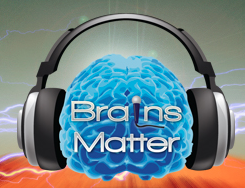Interview with Jeff Hawkins "On Intelligence" (BSP 38)
/Episode 38 of the Brain Science Podcast is an interview with Jeff Hawkins, author of On Intelligence. Hawkins is well-known for founding Palm Computing and Handspring. He invented the Grafitti handwriting recognition system and helped develop the Palm Trio SmartPhone. Since he published his bestseller On Intelligence, he has devoted his work to his passion for neuroscience. His current company, Numenta, is developing software that models the hierarchical structure of the neocortex. In this interview we talk about the ideas in Hawkins book and how he is applying them to develop a computer model of cortical function. This is a follow-up to Episode 2, which first aired in December of 2006.
How to get this episode:
Premium Subscribers now have unlimited access to all old episodes and transcripts.
New episodes of the Brain Science Podcast are always FREE. All episodes posted after January 1, 2013, are free. See the individual show notes for links the audio files.
Listen in your Favorite Audio app: Audible, Amazon music, Pandora, Spotify, YouTube and many more.
Links and References:
Jeff Hawkins: Wikipedia entry
On Intelligence, by Jeff Hawkins with Sandra Blakeslee.http://www.onintelligence.org.
Dileep George: co-founder of Numenta and principal architect of the first prototype implementing the hierarchical temporal memory system (HTM) patterned after the human neocortex.
Vernon Montcastle: pioneer who proposed that all parts of the brain's cortex work the same way.
Vernon Mountcastle (1978), "An Organizing Principle for Cerebral Function: The Unit Model and the Distributed System", The Mindful Brain (Gerald M. Edelman and Vernon B. Mountcastle, eds.) Cambridge, MA: MIT Press (Please let me know if you find this paper on-line!)
Perceptual Neuroscience: The Cerebral Cortex, by Vernon B. Mountcastle. This 1998 is recommended by Jeff Hawkins, especially for those interested in the technical details of cortical function.
Redwood Institute for Theoretical Neuroscience (UC-Berkeley) founded by Jeff Hawkins.
Numenta: company website includes extensive educational information about hierarchical temporal memory system (HTM). The company's focus is practical implementation of HTM Theory.
Donations and Subscriptions are appreciated










